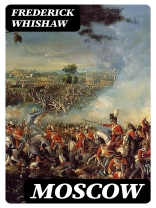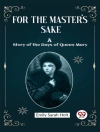In ‘Moscow, ‘ Frederick Whishaw deftly captures the vibrant yet tumultuous essence of Russia’s capital during a period of political upheaval. The novel intricately weaves together rich character studies and evocative descriptions, employing a narrative style reminiscent of the Russian literary tradition while also incorporating his own unique perspective. Whishaw’s prose oscillates between lyrical beauty and stark realism, offering readers a profound exploration of identity, belonging, and the human condition set against the backdrop of one of the world’s most storied cities. Frederick Whishaw, a British novelist and playwright, draws on his diverse experiences, including time spent in Russia and a profound interest in its history, culture, and social dynamics. His background in the arts, combined with rich autobiographical elements, infuses ‘Moscow’ with authenticity and depth. Whishaw’s ability to blend personal narrative with broader themes of sociopolitical relevance illustrates his commitment to examining the complexities of human experiences within historical contexts. For readers seeking a compelling narrative that marries history with personal insight, ‘Moscow’ is highly recommended. It offers not only a gripping story but also an opportunity to engage with the nuances of culture and politics, making it an essential read for those interested in Russian life and literature.
Про автора
Frederick Whishaw (1854–1934) was a prolific English novelist and historian with a penchant for bringing Russian history and culture to the English-speaking audience of his time. His comprehensive understanding of Russian society is exemplified in his book ‘Moscow’, a narrative that explores the complexities and profound historical events that shaped the city and, by extension, Russia itself. Whishaw was not merely an armchair scholar; his works reflect a level of intimacy and detail that suggests a deep engagement with Russian language, literature, and firsthand experience. With an impressive oeuvre that spans numerous novels, Whishaw notably captured the essence of Russian life through his vibrant characters and richly depicted settings. His literary style often combined adventure with historical details, appealing to readers who favored both escapism and educational substance in their reading material. Although Whishaw’s works predominantly centered around Russia, his bibliography is not limited to this region, illustrating his versatility and wide-ranging interests in historical narratives. Today, Frederick Whishaw’s contributions to historical fiction and his role as a cultural bridge between Russia and the West are acknowledged by literary scholars and enthusiasts who have an enduring interest in 19th-century European literature.












